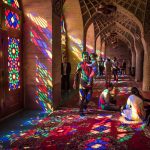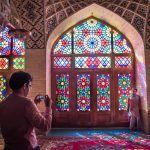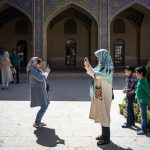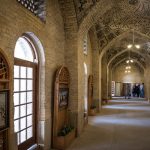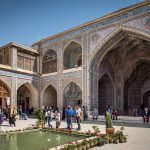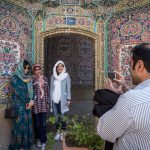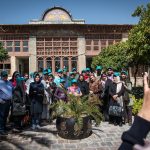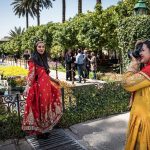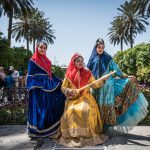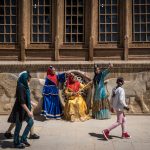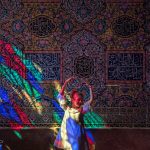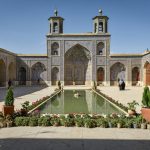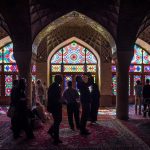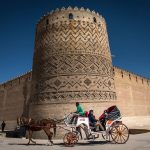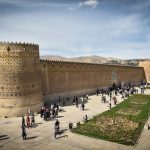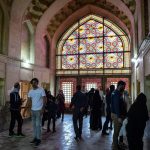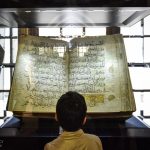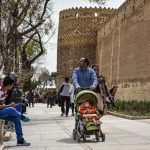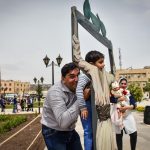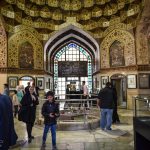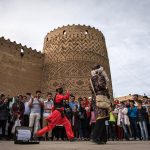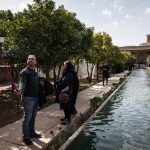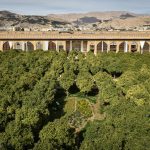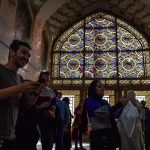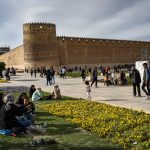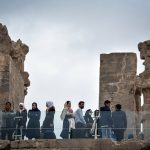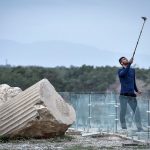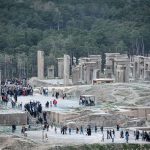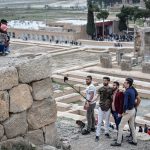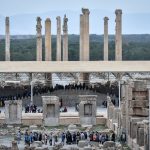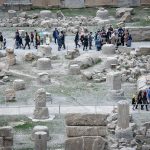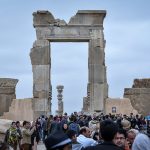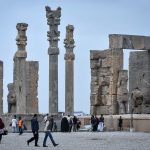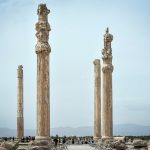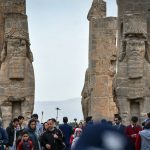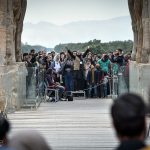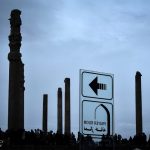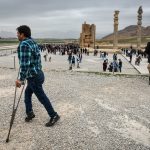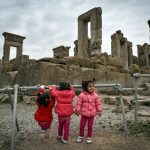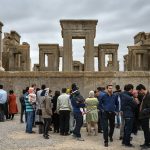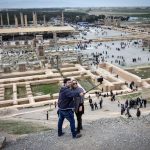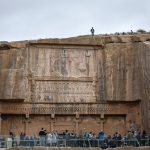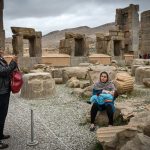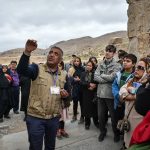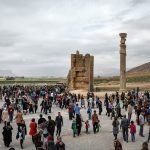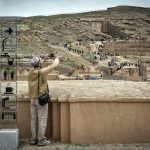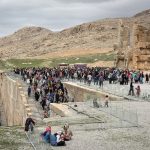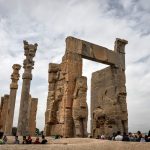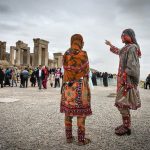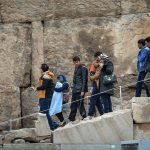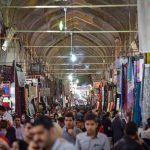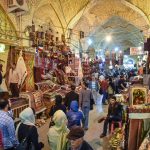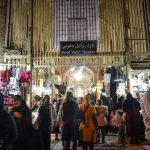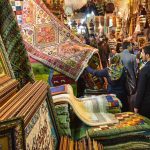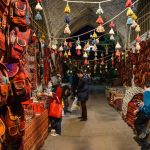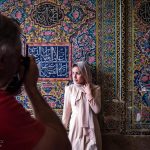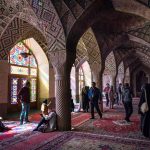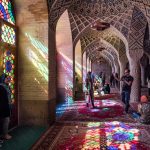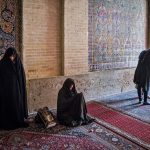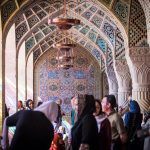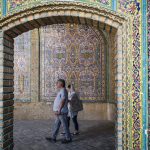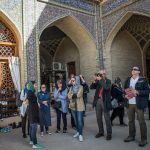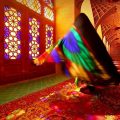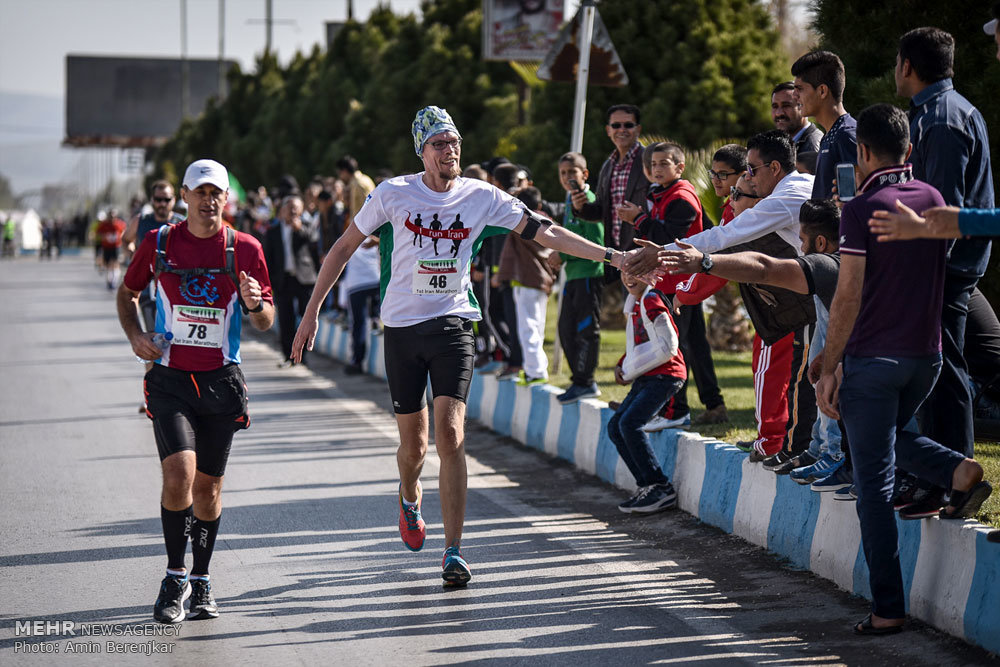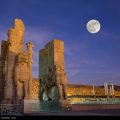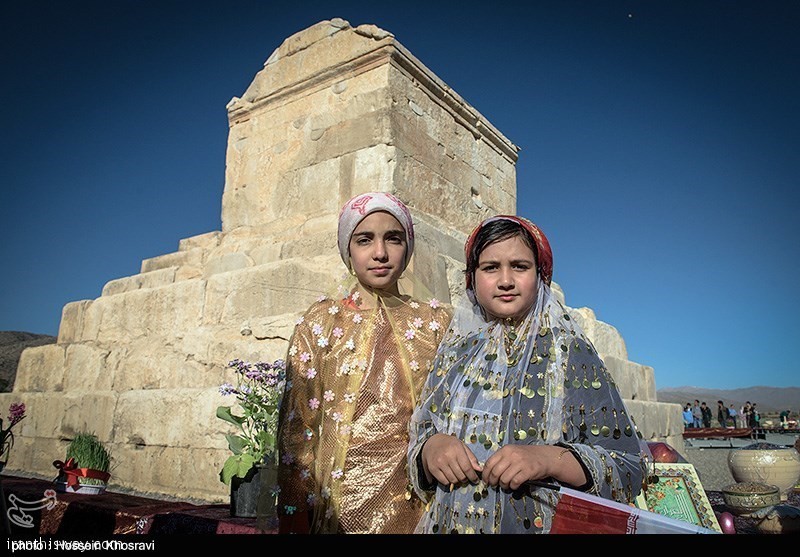The Iranians come to Shiraz for celebrating Nowrouz.
Some people say that it’s the 5,774th time that Iranians across the world are celebrating the ancient Persian New Year festival, Nowruz. However, some history experts believe that Nowruz has been enshrined and observed for more than 15,000 years, well before the official establishment of the Persian Empire. Like Christmas, Nowruz is an elaborate festival that brings millions of people together, but there are certain elements in Nowruz that make it a distinctive tradition, and one of these important elements is its historicity.
Cyrus the Great, the first king of the Persian Empire, came to throne in 550 BC, but for almost 2000 years before him, when In-Su-Kush-Siranna was the ruler of the Kingdom of Aratta, Nowruz had been celebrated in Greater Iran, which consisted of several provinces that currently constitute modern countries like Afghanistan, Tajikistan, Turkmenistan, Azerbaijan, Armenia, Pakistan, Iraq, and parts of India and Turkey.
HaftseenNowruz is considered the most important national holiday in Iran as it marks the beginning of a new solar year and the arrival of spring. According to the Persian calendar, Nowruz begins on the vernal equinox, which starts on March 20 or 21. The beauty and wonderfulness of Nowruz is that it starts on a unique moment each time and people excitedly and breathlessly wait for the announcement of what is known as the moment of the transition of the year. This moment is astronomically calculated according to the Jalali solar calendarand officially inaugurates the New Year.
Unquestionably, Nowruz is one of the prominent hallmarks of the Persian culture and Iranian civilization. It represents the glory and magnificence of ancient Iran and manifests a sense of national pride and dignity for Iranians around the world. In his long epic poem, Shahnameh, the 10th century Iranian poet and philosopher Ferdowsi talks in detail about the origins and roots of Nowruz. He says that when the legendary, prehistoric Iranian king Jamshid Jam conquered the world and ascended the throne, he declared that day as Nowruz and the beginning of Iranian New Year. On that day, Iranians from across the country would come to visit Persepolis (the ancient capital of the Persian Empire) to hold festivals, receive rewards and gifts from the king, enjoy eating festive meals of dried nuts, fruits, and sweetmeat, sing happy songs, and perform plays.
Nowruz is important in that it comes as winter ends, and that is why Iranians believe Nowruz is a feast of rebirth and rejuvenation that injects fresh and warm blood into the veins of the frosty and frozen nature. Iran, which is famous for its climatic diversity and unique nature, is very beautiful in the spring, and especially during the 13 days of Nowruz festivals. Fragrant flowers and attractive plants grow in large quantities in northern, central, and southern parts of Iran, and the weather is predominantly mild and moderate in the majority of the cities all around the country.
Nowruz is celebrated from the Farvardin 1 to 13 (Farvardin is the first month of the solar calendar whose name is taken from the Zoroastrian word “Faravashis” meaning “the spirits of the dead.” Iranians believe that the spirits of their deceased beloved ones will return to the material world in the last 10 days of the year.) One of the common traditions of Nowruz that the Iranians are strongly committed to is paying visit to the elderly and meeting the other members of the family. In such meetings, Iranian families entertain each other with delicious Iranian cuisines, spring fruits, dried nuts, candies, confections, deserts, rice-cakes, pastries, and cookies.
Setting the “Haft-Seen” table is also one of the customs of Nowruz that is seen as a quintessential part of the New Year celebrations. Haft means “seven” in Persian, and “seen” stands for the sign of the 15th letter of Persian alphabet which sounds “s”. The Haft-Seen table is named so because there are seven items on this table whose name start with the Persian letter “seen”. Each of these seven items signifies a certain meaning. These items include “Senjed”, or silver berry, the sweet, dry fruit of the lotus tree, which denotes love and affection; “Sumaq”, or sumac, the crushed spices of berries, which symbolizes sunrise and the warmth of life; “Seeb”, or red apple, which stands for health and beauty; “Seer”, or garlic, which indicates good health and wellbeing; “Samanu”, a sweet paste made of wheat and sugar that represents fertility and the sweetness of life; “Sabzeh”, or sprouted wheat grass, which is a sign of renewal of life; and “Sonbol”, or the purple hyacinth flower, which represents prosperity and goodwill in the New Year. However, the majority of Iranian families put more than 7 items on their “Haft-Seen” table settings. The additional things are “Sekkeh”, coins that herald wealth and affluence; “Serkeh”, vinegar that symbolizes age, patience, and the toleration of hardships; and “Sangak”, a plain whole wheat sour dough flatbread that characterizes blessing and good luck. Iranians also put colored eggs and a bowl of goldfish on their traditional Haft-Seen table and consider these two elements as signs of fertility, welfare, and happiness.
One of the other elements placed on the beautiful Haft-Seen table is a mirror, a symbol of purity, reflection, and honesty. Iranians never forget to put a beautifully adorned and decorated mirror on their traditional table setting. They also put a copy of the Holy Quran on their Haft-Seen table, which they believe will guard their life in the coming year.
In an elaborate and well-researched article about Nowruz published on the Iran Review website, the cultural researcher Firouzeh Mirrazavi writes, “The festival, according to some documents, was observed until the fifth of Farvardin, and then the special celebrations followed until the end of the month. Possibly, in the first five days, the festivities were of a public and national nature, while during the rest of the month it assumed a private and royal character.”
Since Nowruz was historically celebrated in Iran’s ceremonial capital Persepolis [Takht-e-Jamshid] in the southern city of Shiraz, every year thousands of Iranians travel to Shiraz to take part in the national celebrations of Nowruz. Even the foreign tourists who travel to Iran to take part in the celebrations prefer to visit Shiraz or Isfahan during the 13 days of Nowruz.
But why is Nowruz extended for 13 days? According to the ancient belief of the Iranians, 13 is an inauspicious number. On the 13th day of Farvardin, Iranian families gather in parks, gardens, farms, and other green places to eat cuisines containing certain local herbs and have friendly conversations. They also throw sprouted wheat grasses into rivers believing that by leaving the “Sabzeh” in the waterways, they throw away the misfortune associated with the number 13 and the 13th day of the year, and this way, they guarantee their New Year and prevent hardships and calamities from coming into their life. They think that the Sabzeh that is pitched into the rivers will take the bad luck with itself to an unknown destination.
In Nowruz, the adults in the family pay the younger members certain amounts of cash as a gift for the New Year. This reward is called “Eidi” and is not usually spent during the whole year but saved and kept as a token of blessing and wellbeing.
With all of its beauties and splendor, Nowruz is now considered a global festival as it was officially recognized and registered on the UNESCO List of the Intangible Cultural Heritage of Humanity in February 2010. The same year, the UN General Assembly recognized March 21 as the International Day of Nowruz, describing it as a spring festival of Persian origin which has been celebrated for thousands of years.
Nowruz is a relic of past days, a remnant from the dawn of human civilization. It removes religious, cultural, lingual, and national boundaries and connects the hearts of millions of people who want to take part in a unique ceremony marking not only the beginning of New Year, but the end of the distressed winter and arrival of the delightful spring. It’s not simply a source of honor for Iranians who observe and celebrate it, but an opportunity for the congregation and solidarity of all the peace-loving and peace-making nations around the world. / Source

